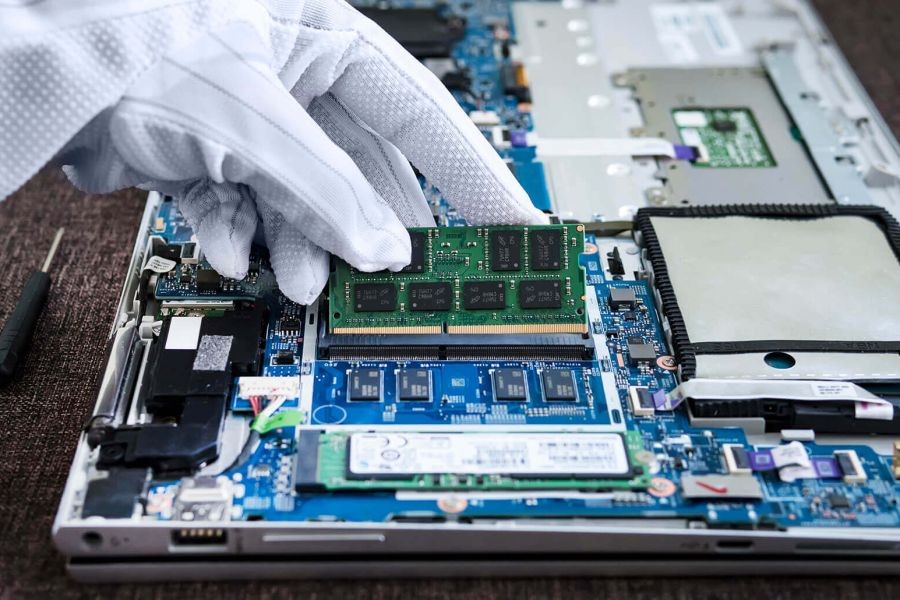In recent years, the integration of machine learning into commercial real estate has significantly transformed the industry, offering new ways to analyze data, predict trends, and enhance decision-making processes. However, as machine learning algorithms become more prevalent, the risk of bias within these systems poses a significant challenge, particularly for commercial real estate brokers in New Zealand. Addressing and preventing bias in machine learning algorithms is crucial to maintain fairness, accuracy, and trust in these systems. This article explores how bias can be mitigated and offers insights into the implications for the New Zealand commercial real estate market.
Understanding Bias in Machine Learning Algorithms
Bias in machine learning algorithms occurs when the predictions or decisions made by the algorithm systematically favor or disadvantage certain groups or outcomes. This can result from various factors, including biased training data, algorithmic design, or unintended consequences of model deployment. For commercial real estate brokers in New Zealand, biased algorithms can lead to skewed property valuations, inaccurate market predictions, and unfair lending practices.
Types of Bias in Machine Learning
- Data Bias: Occurs when the training data used to develop the algorithm is not representative of the overall population. For example, if a dataset is predominantly made up of urban property data, the algorithm may not accurately predict trends in rural areas.
- Algorithmic Bias: Results from the design and implementation of the algorithm itself, which may unintentionally prioritize certain factors over others. This could lead to algorithms favoring luxury properties over affordable housing.
- Deployment Bias: Arises from how an algorithm is used in practice, potentially leading to unintended consequences. For instance, automated valuation models may undervalue properties in communities with historically lower property values.
Case Study: Addressing AI Bias in Real Estate Valuation
Problem: A large real estate firm in Auckland, New Zealand, discovered that their AI-driven property valuation model was consistently undervaluing properties in areas with predominantly Māori populations. This led to lower loan approvals and investment in these communities.
Action: The firm collaborated with local Māori organizations and data scientists to diversify the training data and adjust the algorithm to consider cultural and community factors. They also implemented a review system where human experts could override algorithmic valuations if deemed necessary.
Result: Within a year, property valuations in affected areas adjusted by an average of 15%, leading to increased investment and economic activity. This case highlights the importance of inclusive datasets and human oversight in algorithmic decision-making.
Takeaway: New Zealand businesses can ensure fairer outcomes by incorporating diverse data sources and involving local communities in the development process of AI systems.
Data-Driven Insights: The Impact on New Zealand's Economy
According to Stats NZ, the New Zealand property market has experienced a 27% rise in prices over the past year. This rapid growth presents both opportunities and challenges for commercial real estate brokers. Machine learning offers powerful tools to analyze these trends, but without addressing bias, these tools could exacerbate existing inequalities.
Pros vs. Cons of Machine Learning in Real Estate
✅ Pros:
- Enhanced Predictive Accuracy: Machine learning models can analyze vast amounts of data to forecast market trends more accurately.
- Increased Efficiency: Automating routine tasks allows brokers to focus on strategic decision-making and client relationships.
- Personalized Client Insights: Algorithms can tailor recommendations based on individual client preferences and history.
❌ Cons:
- Risk of Bias: Without proper oversight, machine learning models can perpetuate or even amplify existing biases.
- Lack of Transparency: Complex algorithms may operate as "black boxes," making it difficult to understand how decisions are made.
- Data Privacy Concerns: Handling large datasets raises potential privacy issues, particularly with sensitive client information.
Debunking Myths About AI in Commercial Real Estate
- Myth: AI will completely replace human brokers. Reality: While AI can automate certain tasks, the need for human expertise in negotiation and relationship-building remains critical.
- Myth: AI is infallible. Reality: Algorithms are only as good as the data they are trained on, and biases in data can lead to flawed predictions.
- Myth: More data always leads to better AI models. Reality: The quality and diversity of data are more important than sheer quantity.
Strategies for Mitigating Bias in Machine Learning
To prevent bias in machine learning algorithms, New Zealand commercial real estate brokers can implement several strategies:
- Diverse Training Data: Ensure datasets represent a wide range of demographics and property types.
- Regular Audits: Conduct routine checks on algorithms to identify and correct biases.
- Human Oversight: Implement systems where human experts can review and adjust algorithmic decisions.
- Transparency and Explainability: Use models that offer insights into decision-making processes, allowing for greater transparency.
Future Trends in AI for New Zealand's Real Estate Market
Looking ahead, the integration of AI in New Zealand's real estate market is expected to grow. According to a report by the Ministry of Business, Innovation, and Employment (MBIE), AI-driven technologies could contribute an additional NZD 54 billion to New Zealand's GDP by 2035. To harness this potential, it's crucial to develop fair and unbiased AI systems that serve all communities equitably.
Conclusion
Preventing bias in machine learning algorithms is essential for maintaining fairness and trust in New Zealand's real estate market. By integrating diverse datasets, implementing robust oversight, and ensuring transparency, commercial real estate brokers can leverage AI to its fullest potential. As the industry evolves, staying informed and proactive about these challenges will be key to success.
Interested in learning more about AI and its impact on New Zealand's real estate market? Join our newsletter for exclusive insights and updates!
People Also Ask
- How does AI impact the real estate market in New Zealand? AI enhances predictive accuracy and efficiency, offering better market insights and customer personalization, significantly benefiting New Zealand's real estate sector.
- What are common misconceptions about AI in real estate? Many believe AI will replace human brokers, but it actually augments their capabilities, focusing on data analysis and task automation.
- What strategies exist for implementing AI in real estate? Start with diverse data collection, ensure algorithm audits, and maintain human oversight for balanced and fair AI applications.
Related Search Queries
- AI in real estate New Zealand
- Machine learning bias examples
- Preventing algorithm bias
- Impact of AI on NZ economy
- Real estate market trends NZ 2024
- AI transparency and explainability
- Data privacy in real estate
- AI-driven property valuation
- Future of AI in New Zealand
- Commercial real estate AI tools































